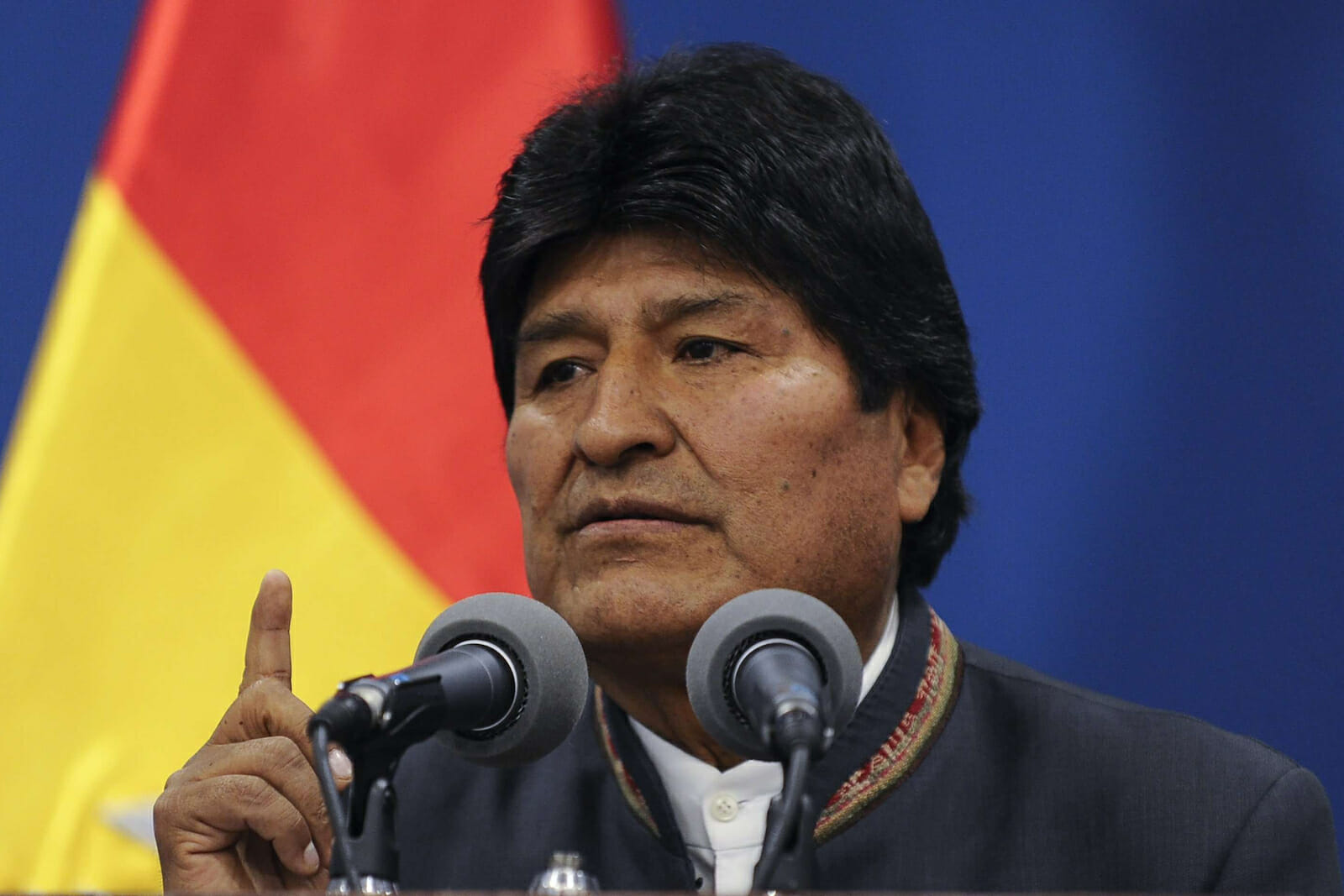
Bolivia: The Conflict Continues
An immense crisis broke out last month in Bolivia after Evo Morales allegedly won his fourth electoral race. This win would have meant almost twenty years of power for Evo Morales. A series of actions by the opposition came with the news of the win and pressured Evo Morales to resign from office on November 10th, leaving behind the longest presidential term in the history of Bolivia. As a result, there was huge uncertainty in the country. Some thought that the crisis would be eased with Morales out of power and that peace was going to be re-established, but the result was chaos.
Amidst the Bolivian disorder, discussions arose as to whether or not Morales’ decision was caused by a military coup or if it was just an effect of the social mobilization. In his resignation speech, Morales assured that what was happening was nothing less than a coup. He stated, “Oligarchic groups are conspiring against democracy.” Some countries like Mexico, Venezuela, Cuba, and Russia stood by Evo Morales and agreed that his resignation was, in fact, caused by a military coup. They believe that Evo Morales was forced to make this decision, even though he still had one year left in office.
The Mexican government made their opinion very clear from the beginning. Marcelo Ebrard, Foreign Minister of Mexico, in a statement, expressed it was a coup because “the Army asked for the president’s resignation and that violates the constitutional order in that country.” Mexico offered Evo Morales political asylum, for they thought his life was in danger if he stayed in Bolivia. Morales accepted the offer and landed in Mexico on November 12th. He claimed the Mexican government and the Bolivian people saved his life.
A few hours after Evo Morales’ arrival, Jeanine Áñez, second vice president of the Senate, proclaimed herself interim president of Bolivia, with only one-third of the Parliament’s approval. With her arrival, there was a huge division in the country between those who support Evo Morales and the ones that stand by the new interim government. After assuming power, Áñez gave a speech to the Bolivian people, saying, “My commitment is to return democracy and tranquility to the country. I am going to work this short period of time because Bolivians deserve to live in freedom, they deserve to live in a democracy.” The new interim president promised that she would do anything in her power to pacify the country.
When a civilian uprising invaded the Bolivian streets supporting Evo Morales, they were not met with a peaceful confrontation by security forces. According to La Nación, on November 15th, confrontations between the ex-president’s followers and the police left 9 people dead in Sacaba Cochabamba. The Inter-American Commission on Human Rights announced that at least 23 people have died and 715 have been hurt since the beginning of the crisis.
In an interview with BBC News, Jeanine Áñez, when asked about the police behavior towards those manifesting support for Morales, claimed that what was happening in the streets of Bolivia was a result of Evo Morales inciting vandalism so she “appreciates the attitude of the Police.” Áñez even signed a decree that states that the Armed Forces are exempt from criminal responsibility when they act in self-defense against civilians to establish order.
There is no logic to how the interim president plans to end the violence. She is not only instructing the Armed Forces to “establish order,” but she is also giving them permission to hurt civilians with no consequences. Other than pacifying the country as she promised, it is very likely that the situation will worsen with this course of action. Jeanine Áñez criticizes Evo Morales’ government, yet it is important that we have in mind how authorities reacted with the people who were demonstrating against Evo Morales and compare that with what is happening now like those who do not support the interim government or the military group. Those supporting Morales have a huge disadvantage that will make it very hard for them to succeed, for civilians, police forces, and the government target them.
A few days have passed and, even though Áñez stated she will soon announce the elections, she has given no sign of that. Uncertainty in Bolivia will keep growing until these elections are held. This will demonstrate how important democracy actually is for the new government.
